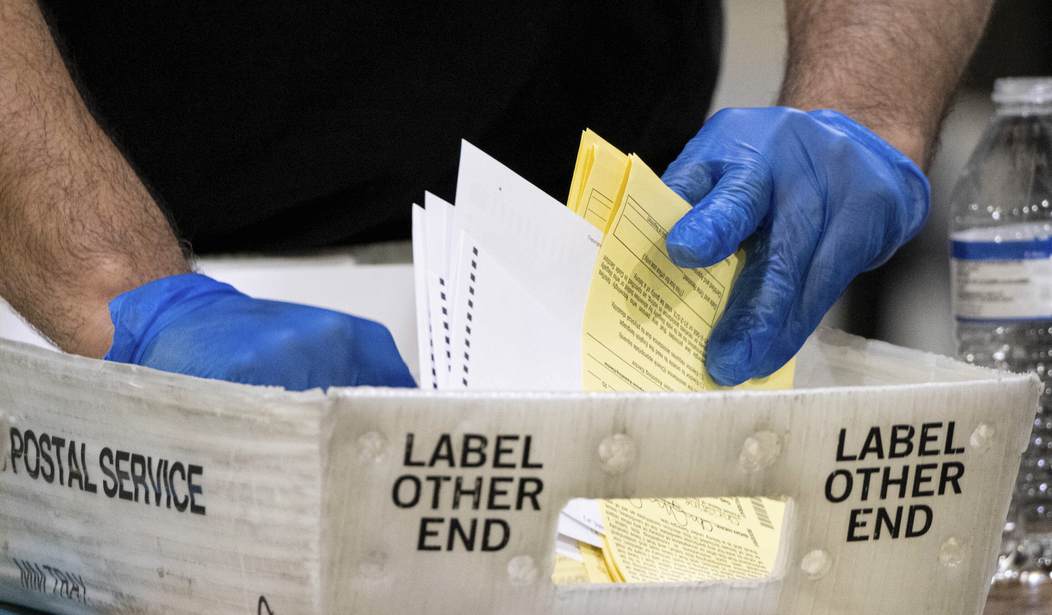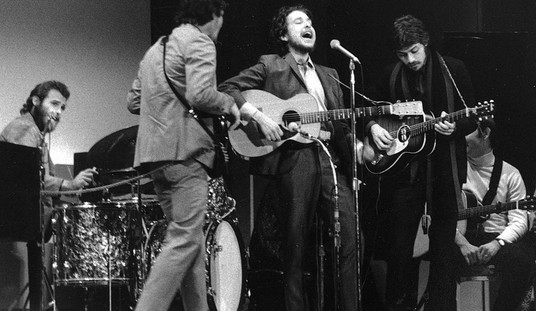As we've learned over the years watching tight presidential races, each state holds its own election and has its own set of rules as to how it is administered. This makes for some stark differences in, for instance, deadlines set by states for accepting absentee or mail-in ballots. Mississippi allows ballot receipt up to five days after Election Day.
Until now, that is. On Friday afternoon, the Fifth Circuit Court of Appeals issued a decision holding that ballots must be both cast and received by Election Day and that Mississippi's law is preempted by federal law.
👀 The 5th Circuit just ruled that ballots must be received by Election Day and state laws allowing them to arrive later are preempted by federal law. pic.twitter.com/yirs5xT1Jq
— Kyle Cheney (@kyledcheney) October 25, 2024
RNC Battles Election Fraud in Another State, Files Suit on NC Absentee Ballot Policy That Breaks Law
'Cheating and Skullduggery': Trump Vows to Stop the 2020 Shenanigans From Happening Again in 2024
Citing both the Electors Clause and the Elections Clause of the Constitution, the court noted:
The upshot: These statutes “mandate[] holding all elections for Congress and the Presidency on a single day throughout the Union.” Foster v. Love, 522 U.S. 67, 70 (1997). As to the President, “The electors of President and Vice President shall be appointed, in each State, on election day, in accordance with the laws of the State enacted prior to election day.” 3 U.S.C.§1. And as to the House of Representatives, “The Tuesday next after the 1st Monday in November, in every even numbered year, is established as the day for the election.” 2 U.S.C. § 7. Throughout this opinion, we use the term “Election Day” to refer to this singular day established by federal law as the time for choosing members of Congress and presidential electors.
The court explains its rationale thusly:
The State’s problem is that it thinks a ballot can be “cast” before it is received. What if a State changes its law to allow voters to mark their ballots and place them in a drawer? Or what if a State allowed a voter to mark a ballot and then post a picture on social media? The hypotheticals are obviously absurd. But it should be equally obvious that a ballot is “cast” when the State takes custody of it.
...
A voter’s selection of a candidate differs from the public’s election of the candidate. Officials tally each voter’s selection and then declare a winner of the election. Those are the not the same thing. And while an individual voter might be able to make his or her selection in private, alone, it makes no sense to say the electorate as a whole has made an election and finally chosen winner before all voters’ selections are received.
That is not to say all the ballots must be counted on Election Day. Even if the ballots have not been counted, the result is fixed when all of the ballots are received and the proverbial ballot box is closed. The selections are done and final. By contrast, while election officials are still receiving ballots, the election is ongoing: The result is not yet fixed, because live ballots are still being received. Although a single voter has made his final selection upon marking his ballot, the entire polity must do so for the overall election to conclude. So the election concludes when the final ballots are received and the electorate, not the individual selector, has chosen.
...
Even today, a substantial majority of States prohibit officials from counting ballots received after Election Day. In January 2020, before the COVID-19 pandemic, only 14 States and the District of Columbia accepted ballots postmarked by Election Day—with the other 36 requiring receipt on or before that date. Nat’l Conf. of State Legislatures, Table 6: The Evolution of Absentee/Mail Voting Laws, 2020– 2 2 (Oct. 26, 2023), https://www.ncsl.org/elections-and-campaigns/the-evolution-of-absentee-mail-voting-laws-2020-through-2022 [https://perma.cc/8ABZ-YFXC]. In advance of the 2020 general election, seven States extended their ballot-receipt deadlines, including Mississippi. See ibid. Of those seven, two already allowed post-election day receipt (California and North Carolina). Ibid. While Mississippi and Massachusetts retained their 2020 ballot-receipt dates, every other State that changed their receipt deadline subsequently reverted to earlier deadlines. Ibid. All told, as of November 2022, 18 States and the District of Columbia permit post-Election Day receipt. See ibid.
...
As Justice Kavanaugh recently emphasized: “To state the obvious, a State cannot conduct an election without deadlines . . . A deadline is not unconstitutional merely because of voters' own failures to take timely steps to ensure their franchise.” Democratic Nat’l Comm. v. Wis. State Legislature, 141S. Ct. 28, 33 (2020) (Mem.) (Kavanaugh, J., concurring in denial of application to vacate stay) (quotation omitted); see also Burdick v. Takushi, 504 U.S.428, 438 (1992) (“Reasonable regulation of elections . . . does require [voters]to act in a timely fashion if they wish to express their views in the voting booth.” (emphasis in original)). Federal law requires voters to take timely steps to vote by Election Day. And federal law does not permit the State of Mississippi to extend the period for voting by one day, five days, or 100 days. The State’s contrary law is preempted.
RNC Chair Michael Whatley celebrated the decision, calling it a "MASSIVE ELECTION INTEGRITY VICTORY."
MASSIVE ELECTION INTEGRITY VICTORY:
— Michael Whatley (@ChairmanWhatley) October 25, 2024
The 5th Circuit has just ruled that ballots must be received BY ELECTION DAY to be counted — not days after — following an RNC lawsuit.
This is a seismic win for fair, accurate, secure, and transparent elections.
One suspects, however, that this is not the final word on the issue. Presumably, the defendants will appeal the Fifth Circuit's decision, and the Supreme Court may ultimately weigh in on it. And the decision will apply only as to those states in the Fifth Circuit (Texas, Louisiana, and Mississippi — and of those, only Mississippi has the post-election day receipt provision). For those who advocate for an Election Day deadline, though, this is a solid victory.















Join the conversation as a VIP Member